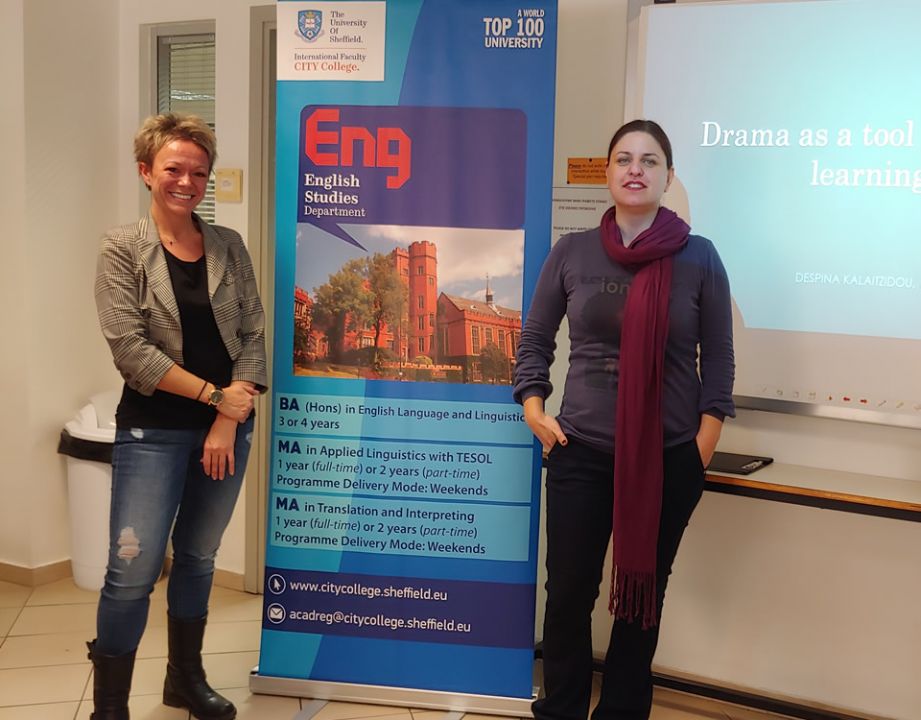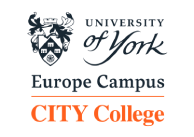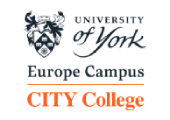The English Studies Department Actively Learns Through Drama
The month of November would not find the English Studies Department lacking in a Personal and Professional Development Seminar. Tuesday, 13 November inaugurates the active/interactive Personal and Professional Development seminar titled: Drama as a Tool for Active Learning.
Guest speaker Ms Despina Kalaitzidou - an instructor, drama facilitator, playwright and director – introduced the inspiring aspect of active learning an approach where students are actively involved in the learning process. Drama poses as an ideal technique that assists in employing this approach and Ms Kalaitzidou’s practical seminar helped raise awareness towards the significance and creativity of Drama in Education.

Dr Marazi and Ms Kalaitzidou
The seminar introduced or rather highlighted some strategies that are employed in teaching methodologies that are closely associated with active learning such as: brainstorming, group work, games, creative writing, role play, simulation, reflection, as well as multisensory and multimodal teaching/learning. At the same time, Ms Kalaitzidou stressed how to be an active learner one also has to be a critical thinker.
Moreover, drawing on the work of Dorothy Heathcote, Ms Kalaitzidou emphasized and demonstrated how the aims of Drama in Education are to create a dramatic experience one “lives through” and via surprise and discovery actively engage senses, imagination, language and the body to solve a problem, face a challenge, consider an alternate perspective, or reach new levels of understanding.
Beginning with a group breathing warm-up, participant volunteers engaged in a series of active learning activities. The first required pantomime and guess work; the second, actively joining a group to display preference, while the third required turn-taking, pantomime, questions/answers and following instructions. Before reflecting on the process, a cool-down of collective breathing helped to bring about a sense of closure.
The Q/A session to follow actually turned out to be an interactive discussion where participants provided feedback on their experience, reflected on the benefits and challenges, the types of drama techniques one can employ for English Language Teaching but also in what other subject areas Drama as a Tool for Active Learning can be applied.
The overall educational and inspirational benefits of Ms Kalaitzidou’s workshop are the combination of theory, action, reflection as well as the multiple perspectives from which one can see the significance of Drama: as literature, as a teaching/learning tool, and as a form of art.








